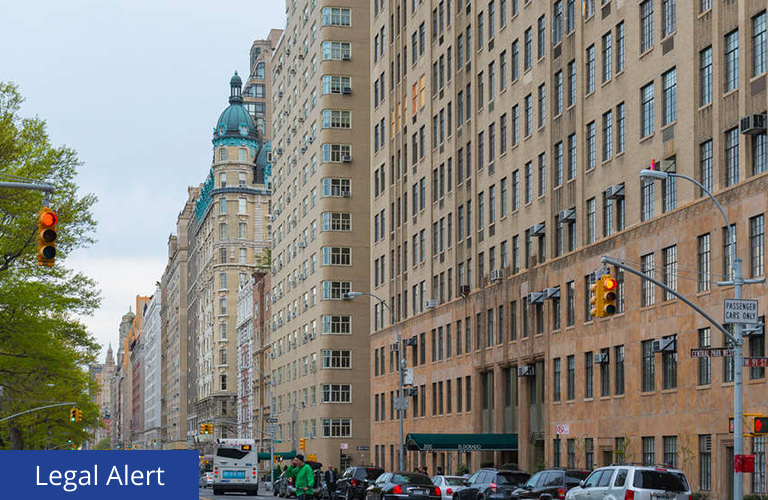
Owners of cooperative apartments in New York are both renters, pursuant to their proprietary lease, and owners, pursuant to their stock ownership in the cooperative corporation. Oftentimes the legislature overlooks this distinction resulting in unintended consequences for co-op buildings and owners.
There are presently two proposed laws pending in Albany to address the legislative confusion over whether cooperative buildings should be subject to the same legal restrictions as rental buildings. State Assemblyman Braunstein and Senator Stavisky introduced Assembly Bill 1701/Senate Bill 1745, which clarifies that cooperative apartment proprietary lessees are not to be considered “tenants” in future residential landlord-tenant laws unless the legislation expressly includes cooperative proprietary lessees. This bill enjoys widespread support in the co-op and condo community including from the New York City Bar Association Cooperative and Condominium Law Committee, chaired by Smith Gambrell Partner Christopher Tumulty, which issued a statement in support of the legislation.
This proposal is necessary because the New York State Legislature frequently enacts laws regulating residential landlords and tenants in New York that mistakenly also impact cooperative buildings. In recent laws, such as the 2019 Housing Stability and Tenant Protection Act for instance, broad restrictions were imposed on security deposits for leases, late charges for unpaid rent, application fees, and collection of charges other than monthly rent. While such limits may be useful or necessary where the landlord is a private owner of a rental building with economic interests that are adverse to those of the tenants, these limits are problematical in a cooperative building where all tenants are also owners and have a common interest in having adequate security, prompt maintenance payments, and the ability to collect all charges due for ownership and occupancy of an apartment. Cooperators also have the ability to amend their leases where their collective experience and interests suggest it would be beneficial. Following the 2019 law, the legislature then had to enact subsequent legislation to address the confusion created and the different impact on cooperatives that was not considered in the initial 2019 bill. The proposal from Assemblyman Braunstein and Senator Stavisky seeks to avoid a repeat of these issues.
In response to this proposed clarifying bill, State Senator Ramos recently introduced Senate Bill 7977 to have the opposite effect. Unfortunately, this bill would exacerbate the confusion by imposing a uniform rule that co-op owners are always to be considered “tenants” under future legislation regulating residential landlord-tenant relationships in New York. Under this proposal there would be effectively no difference in the landlord-tenant relationship between a co-op building and a rental building.
If you have any questions about this proposed legislation, please reach out to a member of our Cooperative and Condominium Practice. As these bills are currently being considered before the end of the legislative session in June, you have an opportunity to express your views by contacting your local state assembly person or senator.

